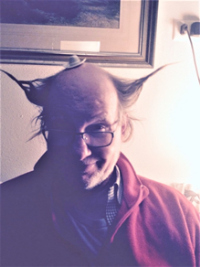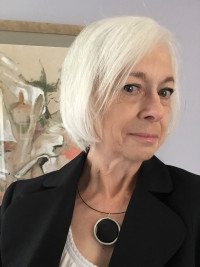.
.
.
.
The Empty Quarter
………………………………..—Rub’ al Khali
This empty quarter inside him,
inside his still-beating heart,
was full of song and fun.
There was loud pizzicato music
and air and spirits flying about
all bright things in sight.
Maybe there shouldn’t have been:
dry sands looked fine all alone,
the souls of earth flying in and out
of hands of prose and feelings.
His sun had long since emptied out,
been filled with silica, with myrrh.
Rahsaan Roland Kirk’s sax song
drives up into dry, sad earth, makes
it fertile for play, for after life—
for vivezza and vibrancy, much
openness and joyfulness, as if
his skies arced fully up to apogee.
Tear the dunes away, back into
empty centers of language of air;
Rahsaan’s music hits its up-marks,
weaves just above hot quartz. Lost
here and there, and all around, are
doors, but each one leads back into
what was first only circle; cut time
is not now so becomes disjointed.
Let those preachers of wood fill air
with backwash or backlash…with loss,
with loss—are there not incoming
distractions, any Nebenstimme?
Constantinople, it seems, was packed
up yesterday then mailed out afar.
Little pictures of a city were beat
into one larger one. His desert of jazz
was killingly hot, distance rising out
of horizonless dunes. What became
of that early tribe of musicians in
exit into so-called empty quarters?
Mirages shimmered at his feet; air
just seemed to waver but actually
did waver. There was no life there
unless deep under molten sand.
One going down far beneath may
even find traces of moisture, but
the clavicle of sands will not bend
longer without snapping. Wolves
crest the broad horizon; his sax
will soon dominate the clave.
.
by R.J. Keeler
.
.
.
.
.
Live Music
The jazz band plays “Bye Bye Blues”
to end the final set of the evening,
and I am transported to a time, decades ago,
when flood waters poured through
New Orleans, shutting down businesses,
destroying rugs, raising an ancient fear
among residents. The next morning,
three of us walked through an abandoned
French Quarter, where rain-blessed
banana leaves glowed like bright green
fan blades. With no cars, no tourists, no music,
no horse hooves, all we could hear
was the sloshing of our shoes—until we heard
the plaintive strains of “Bye Bye Blues”—
a woman’s voice carried through
the mineral-charged, still air at the edge
of Jackson Square. She wore a long skirt
and sang through a megaphone
to an audience of three. The clarity
of her voice shook my body; the sevenths
shot up my spine. Now, sitting in a folding chair
outside a rustic old jazz hall, I am overcome
by the ozone perfume of my youth, and I sigh
deeply. In my mind’s ear, eternal notes pushed
through a megaphone still radiate, and—
in spite of myself—I do not cry.
.
by Diane Elayne Dees
.
.
_____
.
.
.
R. J. Keeler is a poet now living in Vashon, Washington. His collection “Detonation” will be published later in 2019. His artistic statement: “Does not subscribe to the cattle-prod paradigm of poetry. May tend to melancholy. Humor trumps everything.”
.
.

.
Diane Elayne Dees’s poetry has been published in many journals and anthologies. Diane, who lives in Covington, Louisiana, also publishes Women Who Serve, a blog that delivers news and commentary on women’s professional tennis throughout the world. Diane’s chapbook, I Can’t Recall Exactly When I Died, is forthcoming from Clare Songbirds Publishing House.
.
.
.
































